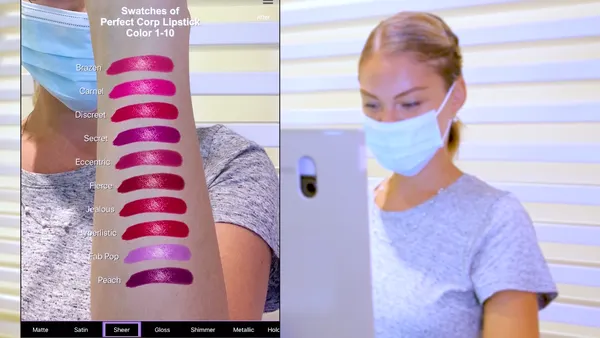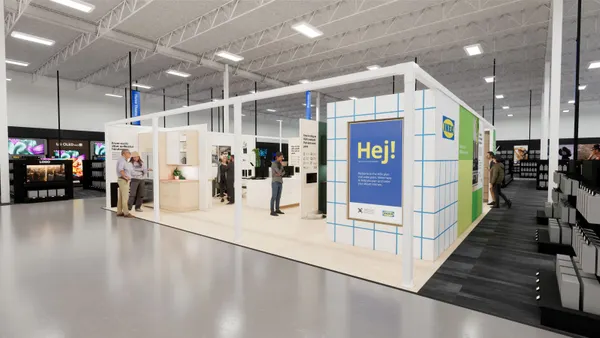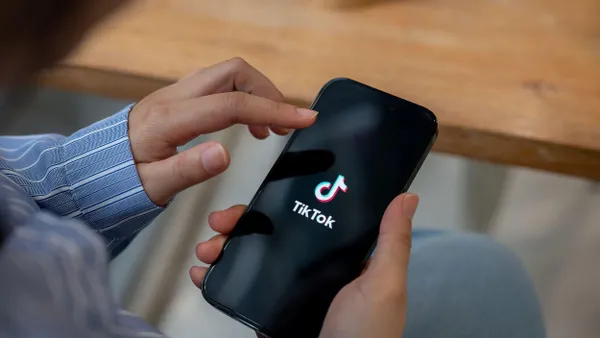Dive Brief:
- Standard Cognition, which is developing a cashierless checkout solution that could ultimately present retailers with an alternative to Amazon Go's "just walk out" technology, said it is installing its system with "multiple retailers" globally, including in the U.S., according to a press release. Standard Cognition’s autonomous checkout solution is based on artificial intelligence and machine vision.
- Although most of those retailers are unidentified, the company said it has signed Paltac Corporation as its first customer in Japan. Paltac has over $8.6 billion in annual net revenues and is Japan’s biggest wholesaler of over-the-counter drugs and fast-moving packaged goods. Paltac distributes to thousands of retail stores and envisions reaching millions of Japanese shoppers with Standard Cognition’s autonomous checkout solution.
- Standard Cognition said it has opened an office in Tokyo and hired Yohei Nishiyama as general manager of that location. Nishiyama has more than 10 years of experience in international business development and strategic partnerships and has a background in payment, fintech and e-commerce.
Dive Insight:
Self-checkout is one thing, scan-and-go is something else, but so far nothing has come close to the potential retail upheaval promised by Amazon Go’s "just walk out" technology. But now there is something on the horizon.
Standard Cognition claims its AI and machine-vision based autonomous checkout solution is an alternative to Amazon Go. If it is successful in implementing its system, that could be good news for retailers who had previously been limited to scan-and-go systems, where customers have to physically scan the product with their mobile device and, depending on the store, finalize purchases at self-checkout lanes or kiosks. These sometimes involve radio-frequency identification (RFID) chips, which can be expensive and time-intensive to apply.
Amazon Go and Standard Cognition are two of a very small number of companies pushing the envelope in autonomous checkout — for now. Standard Cognition launched a week after Amazon Go was announced, has fewer cameras, no shelf sensors, no facial recognition and is installed overhead only, as opposed to on-shelf. As opposed to scan-and-go, Standard Cognition combines computer vision tech and AI to recognize items while keeping shopper identities anonymous. A mobile app automatically registers and initiates payment without any further action by the shopper. Walmart had a 150-store test of scan-and-go, but ended it in the spring after it found few shoppers using the system, which required more of their active involvement than Amazon Go’s or Standard Cognition’s solutions. However, Meijer plans to complete a rollout of its Shop & Scan mobile checkout app to all its stores by summer's end.
Amazon Go and Standard Cognition won’t be alone for long. Microsoft is reportedly developing technology that would enable cashierless point of sales systems, according to Reuters. Google parent Alphabet recently helped fund Scandit, a Swiss company that develops mobile self-checkout technology for retail. China’s JD.com plans to open hundreds of unmanned convenience stores using facial recognition technology that allows customers to pay without standing in a checkout line. Panasonic has developed a system which uses a shopping basket that can detect the merchandise placed in it, calculating the bill with each item added.
A study from Juniper Research last fall predicted that cashierless checkout systems will process more than $78 billion in transactions by 2022, up from $9.8 billion in 2017. In response to this expected demand and to the potential of its technology to compete head-on with Amazon Go, Standard Cognition raised $5.5 million in follow-on seed funding from Charles River Ventures, nearly doubling the startup’s total funding to about $11.2 million and allowing it to start the pilot projects with retailers and Paltac.
Standard Cognition charges retailers a small transaction fee to enable use of the apps, but said its system can lower labor costs, reduce shrink, provide more accurate inventory tracking and allow retailers to use the in-store real estate once allocated to checkout lines for other purposes.











